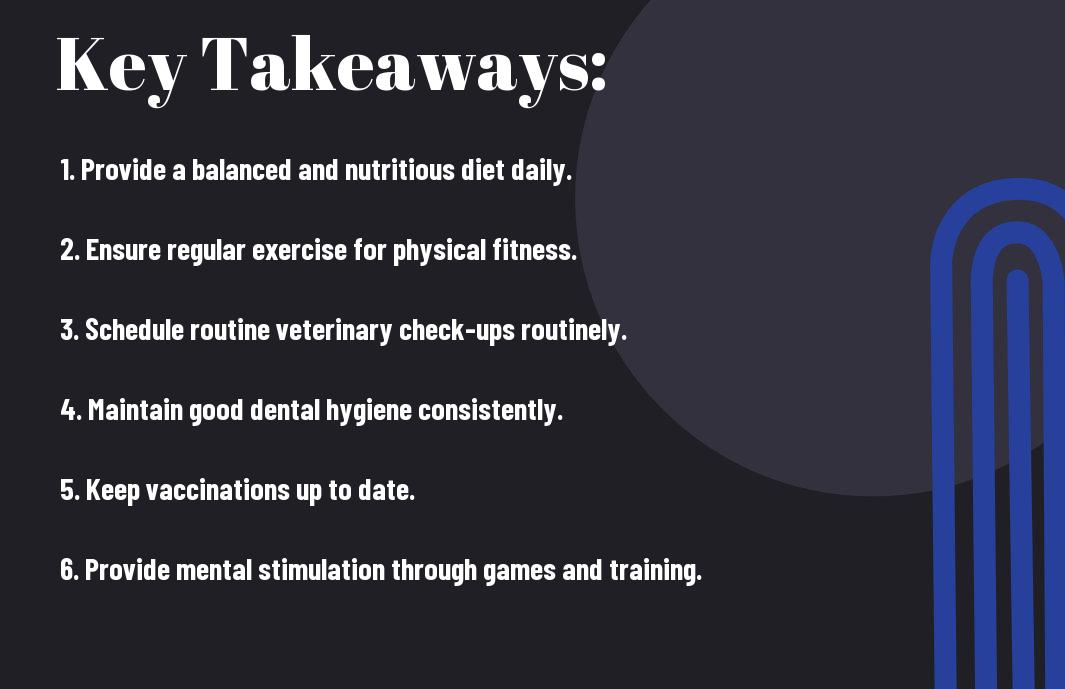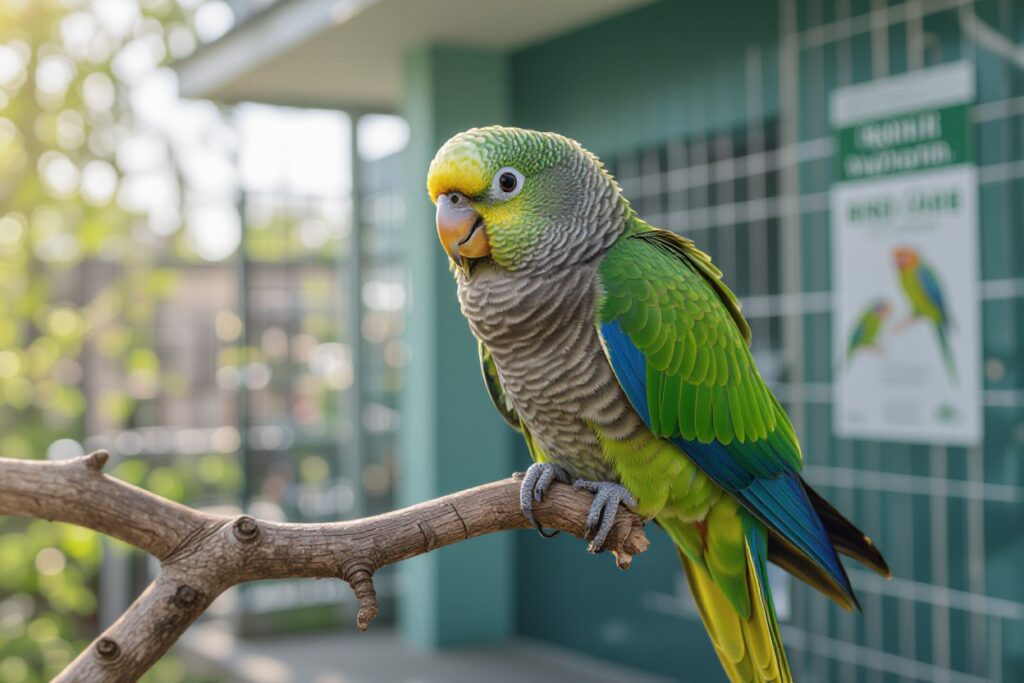Loud noises can be extremely distressing for your bird, leading to anxiety and even health issues. Understanding how to calmly approach and support your feathered friend is important for their well-being. You will learn effective strategies to create a safe environment that minimizes stress, as well as techniques to help your bird gradually adjust to typical sounds. With patience and care, you can help your bird feel more secure and confident, ensuring a happier and healthier life together.


Understanding Bird Behavior
For many bird owners, understanding their feathered friends’ behaviors can be key to ensuring a happy and healthy environment. Birds can be incredibly sensitive creatures, especially when it comes to loud noises. This chapter will probe into the reasons behind these fears and how you can empathize with their experiences.
Factors Contributing to Fear
Now, there are several factors that may contribute to your bird’s fear of loud noises. These can include past traumatic experiences, inherent instincts related to survival, and even their individual personality. Birds are prey animals, and sudden loud sounds can trigger instincts that alert them to potential dangers. Additionally, if your bird has been exposed to loud environments previously, this may have heightened their anxiety levels.
- Past experiences with loud noises
- Natural instincts that signal threat
- Personality traits that affect sensitivity
Perceiving any new loud sounds as a threat can create overwhelming stress for your bird, and understanding this can help you provide the comfort and safety they need.
Common Reactions to Loud Noises
There’s a range of common reactions that you might observe in your bird when it hears loud noises. These can include behaviors such as flapping their wings, hiding in their cage, or even displaying signs of aggression or distress. Some birds may become very vocal, squawking or chirping incessantly, while others might choose to remain quiet as a way to cope. Understanding these reactions is crucial as it allows you to provide the appropriate support during these tense moments.
Loud noises can provoke a significant level of anxiety in your bird. It’s important to remember that these reactions should be taken seriously since they can lead to long-term behavioral issues, including stress-related health problems. When your bird exhibits fearful behavior, promptly addressing the situation can help minimize its impact on both their mental and physical well-being. By recognizing their responses and providing a safe space, you can help alleviate their fears, leading to a more tranquil living environment for both you and your pet.
Preparing Your Environment
Some birds are particularly sensitive to loud noises, which can lead to stress and fear. By preparing your environment effectively, you can help your bird feel safe and secure. A calm atmosphere not only enhances your bird’s experience but also encourages trust and bonding with you.
Creating a Safe Space
To create a safe space for your bird, it’s imperative to designate a quiet area in your home where they can retreat when they feel overwhelmed. This area should be away from high-traffic zones and away from windows where outside noises can intrude. Consider setting up their cage with familiar toys and perches to promote a sense of comfort. A small covered section in the cage can also serve as a hiding spot, providing your bird with an increased sense of safety during loud episodes.
Furthermore, ensure that this safe space is well-ventilated and has appropriate lighting. Using dim lighting can further help in creating a calming atmosphere. Your goal is to foster an environment where your bird feels protected enough to relax and recharge when unexpected sounds arise.
Soundproofing Techniques
Any effective soundproofing techniques you implement can further reduce the impact of loud noises in your bird’s environment. Consider using heavy curtains or acoustic panels to block out external sounds from busy streets or neighbors. Additionally, adding rugs or carpets can help absorb sound within your home, minimizing echo and disruptions.
Preparing your home also means being mindful of potential noise coming from appliances or electronics. Whenever possible, position your bird’s cage away from the noise generated by televisions, washing machines, or other loud devices. Creating this buffer zone can significantly contribute to your bird’s well-being.
Reducing Sudden Loud Noises
Your ability to minimize sudden loud noises is crucial for helping your bird adapt over time. Start by being conscious of common triggers in your household, such as slamming doors or loud conversations. You can train family members and guests to be more aware of their volume levels around your bird to make a collective effort towards reducing stress.
Moreover, using soft toys or sound therapy can help soothe your bird during transition periods. You can play soft background music or white noise to drown out sudden disruptions which, in turn, can create a more pleasant living environment for your bird.
Creating a positive space aids in establishing a sense of normalcy for your bird, allowing them to thrive even amidst the noise challenges you may face at home.
How to Calm an Afraid Bird
To effectively calm a bird that is afraid of loud noises, you must first create an environment that promotes safety and comfort. This involves understanding your bird’s behavior and natural instincts, subsequently empowering you to use various techniques to ease its anxiety. The key is patience and consistency.
Gentle Handling Techniques
You want to employ gentle handling techniques when interacting with your bird. Ensure that you approach your pet slowly and speak softly to prevent startling it. When you need to pick up or move your bird, always support its body properly, allowing it to feel secure in your hands. Avoid sudden movements, as this can provoke fear and anxiety, making it more aware of any external loud noises.
You can also create a positive association with handling by offering treats while you gently stroke or hold your bird. This will help build trust, enabling your bird to feel safer in your presence. Over time, through gentle handling, you can help your bird develop an increased sense of security, minimizing its fear of loud sounds.
The Importance of Routine
While every bird has its own unique personality, establishing a consistent routine can significantly help in calming an afraid bird. Birds thrive on predictability, and having a daily routine can reduce stress and build a sense of stability. Regular feeding times, play sessions, and social interactions should be scheduled at the same times each day to create that necessary predictability.
Implementing a routine allows your bird to anticipate what comes next, reducing its anxiety towards unexpected noises. As a result, your bird may become less jumpy as it learns that these events are part of its daily life.
Techniques such as keeping consistent lighting, temperature, and noise levels during certain parts of the day further solidify this routine, establishing a comforting atmosphere for your bird.
Using Positive Reinforcement
There’s no doubt that positive reinforcement can work wonders when addressing a bird’s fear of loud noises. By rewarding your bird with treats, praise, or affection for calm behavior, you reinforce the idea that being relaxed around loud sounds is a good thing. Start by introducing these rewards during quiet times, gradually increasing volume when your bird appears comfortable.
Over time, positive reinforcement will help create a mental link between calmness and rewards, effectively reducing your bird’s fear response. The key is to be patient; changes won’t happen overnight.
Understanding how to gradually incorporate this training into your interactions will go a long way in teaching your bird to respond positively to previously triggering sounds.
Introducing Soothing Sounds
Importance in introducing soothing sounds cannot be understated, as it serves to acclimatize your bird to various noises in a controlled manner. Soft, calming music or white noise can be effective in masking loud sounds your bird might encounter. Start playing these soothing sounds at a low volume, gradually increasing as your bird becomes more accustomed to them.
By doing so, you teach your bird that loud sounds do not always equate to danger. In time, your bird will learn to relax instead of feeling threatened when faced with unexpected noises.
Birds generally have sensitive hearing and may respond positively or negatively to different sounds. Thus, it’s vital to observe your bird’s reactions and adjust your approach accordingly.

Additional Tips for Bird Owners
Not all birds react the same way to noisy environments, and it’s imperative to train and reassure your feathered friend to help ease their fears. Here are some additional guidelines you can follow:
- Your bird’s environment should be calm and quiet when introducing new sounds.
- Use positive reinforcement when your bird displays bravery in the face of noise.
- Consider using soothing music or white noise machines to gradually introduce sounds at a low volume.
- Schedule playdates with other calm birds to help your pet build confidence.
Recognizing the signs of stress in your bird is crucial to ensuring they remain healthy and happy.
Monitoring Your Bird’s Stress Levels
Some birds may exhibit signs of fear or anxiety when exposed to loud noises. Common behaviors include flapping, hiding, or excessive screaming. To effectively monitor your bird’s stress levels, pay close attention to their body language and vocalizations. Keeping a journal of your bird’s reactions can help you identify patterns that correlate with specific sounds or situations.
Additionally, establishing a consistent routine helps create a sense of security for your bird. A daily schedule for feeding, playtime, and interaction can reduce anxiety and give you insight into how your bird adjusts to various stressors. By being observant and proactive, you can help minimize your bird’s exposure to loud noises and better support their emotional well-being.
Consulting with a Veterinarian
Levels of fear in birds can range from mild to severe, and understanding the degree of your bird’s anxiety is imperative. Discussing your concerns with a veterinarian will provide you with valuable insights into your pet’s stress response and overall health. Your vet may suggest specific strategies or provide resources tailored to your bird’s needs.
Moreover, a veterinarian can rule out any underlying medical conditions that may be exacerbating your bird’s anxiety. A health check-up ensures your bird is physically fit and helps identify any additional factors contributing to their loud noise phobia. It’s critical never to overlook the importance of a professional’s perspective when seeking to alleviate your bird’s fears.
Seeking Professional Help
To address your bird’s fear of loud noises effectively, you may need to seek assistance from an avian behaviorist. These professionals specialize in understanding avian behaviors and can provide tailored strategies to help your bird cope with anxiety related to noise. Engaging in behavior modification techniques under the guidance of an expert can lead to significant improvements over time.
Owners who find themselves overwhelmed by their bird’s fear may discover that professional help can lead to a more harmonious living environment. You should never hesitate to reach out for assistance; the sooner you seek help, the sooner your bird can experience relief and improve their quality of life. It’s an investment in your feathered friend’s overall emotional health and happiness.
To Wrap Up
As a reminder, handling a bird that is fearful of loud noises requires a combination of patience, understanding, and gradual acclimatization. First and foremost, you should create a safe environment where your bird feels secure, away from sudden sounds that might trigger its anxiety. Use calming strategies, such as soft music or white noise, to help mitigate loud disturbances. Additionally, engaging in positive reinforcement through treats and praise will encourage your bird to associate louder sounds with pleasant experiences, gradually building its confidence.
Moreover, it’s imperative to recognize that each bird is unique, and progress may take time. Consistency is key; you should frequently expose your bird to a variety of sounds at lower volumes, increasing the intensity as it becomes more accustomed. If necessary, consult with an avian veterinarian or a bird behaviorist for tailored strategies to help your feathered companion adjust. By following these steps, you will improve your bird’s quality of life and strengthen the bond you share.
FAQ: How to Handle a Bird That’s Afraid of Loud Noises
Q: What should I do if my bird gets scared by sudden loud noises?
A: When your bird gets scared by loud noises, the first step is to remain calm yourself. Birds can pick up on human emotions, so staying relaxed can help soothe them. You can try to create a safe, quiet space for your bird away from the noise by covering their cage with a light blanket or moving them to a quieter room. Speak softly to your bird to reassure them. After the loud noise has subsided, offer treats or favorite toys to help create positive associations with being in the quiet space while gently engaging them.
Q: How can I help my bird gradually get used to loud noises?
A: Gradual desensitization is an effective technique to help your bird become accustomed to loud noises. Start by exposing your bird to soft, non-threatening sounds (like soft music or nature sounds) while they are calm. Gradually increase the volume over time, always ensuring the noise is not too loud or abrupt. Pair these sounds with positive experiences—like treats or playtime—to help them associate loud noises with good things. Always monitor your bird’s reaction and proceed at a pace that seems comfortable for them.
Q: Are there any environmental adjustments I can make to reduce my bird’s stress from loud noises?
A: Yes, you can make some environmental adjustments to minimize your bird’s exposure to loud sounds. Consider placing the bird’s cage in a quieter area of your home, away from common noise sources like televisions, stereos, and traffic. Soft carpets and curtains can help absorb sound. You can also use white noise machines or fan sounds, which can create a masking effect that drowns out sudden loud noises. Additionally, providing plenty of comforting toys and perches can help your bird feel more secure in their environment, reducing overall stress levels.










